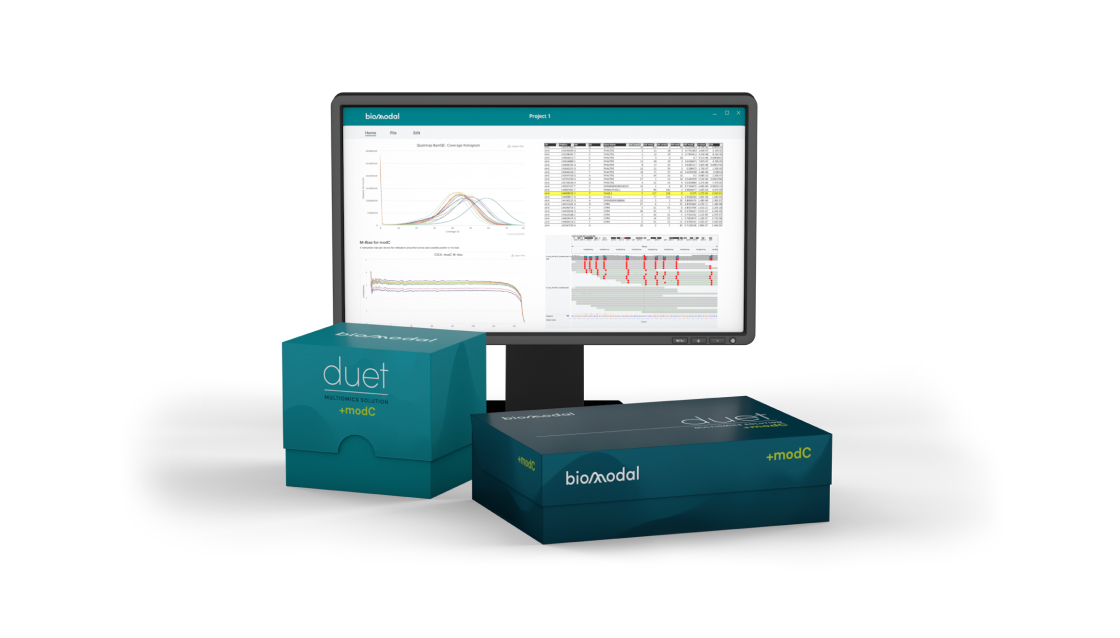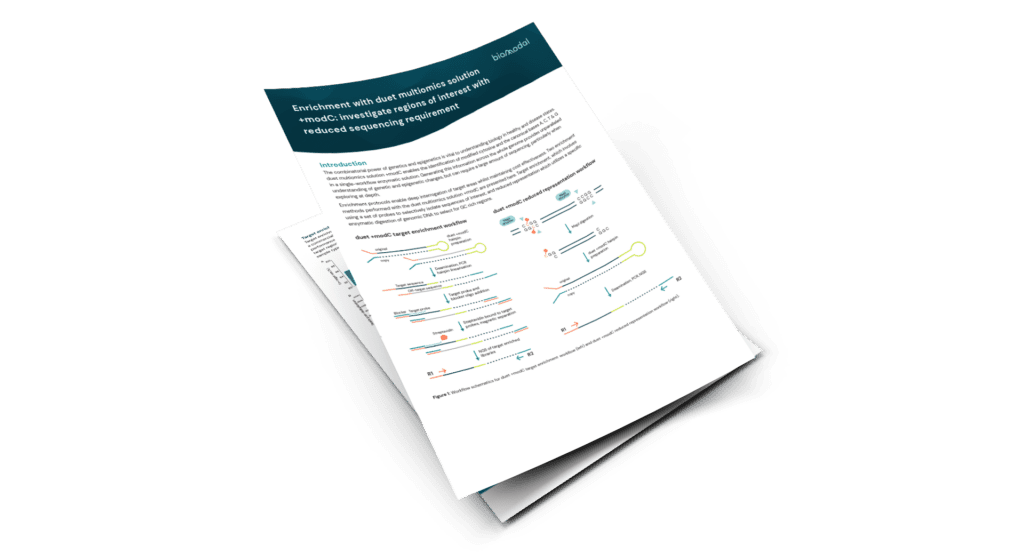DNA comprises molecular information stored in genetic and epigenetic bases, both of which are vital to our understanding of biology in health and disease. The interaction of genetics with the epigenome plays a causal role in cell fate, ageing, and disease development. For example, modified cytosine profiles of cancer are differential from non-cancer, and genetic plus modified cytosine data together are more powerful for the detection of early cancer than either alone.
Methods widely used to detect epigenetic DNA bases do not distinguish unmodified cytosines and thymine, therefore fail to capture common C-to-T mutations and thus capture incomplete genetic information. As a result, studies of genetics and methylation together require separate measurements of genetics and epigenetics. One such example is liquid biopsy for profiling of cell-free DNA (cfDNA) in blood, which has shown huge promise in early cancer detection, as well as identification of residual disease and subtype. A standard blood draw yields an average of only 10 ng of cfDNA, limiting a researcher to measuring one of genetics or methylation in their sample.
We introduce duet multiomics solution +modC, a single base-resolution sequencing methodology that sequences complete genetics and cytosine modifications in a single workflow, enabling the identification of genetic variants and quantification of modified cytosine levels in a single experiment, at high accuracy for both genetics and epigenetics. This method is compatible with low quantities of input material, enabling the measurement of genetics and methylation in cfDNA, increasing the information available to identify traces of tumour in cfDNA. The phased nature of the technology, whereby genetic and epigenetic information is available jointly at read level, enables the study of genetic and epigenetic co-variation as seen in allele-specific methylation (ASM), whereby differential methylation patterns are observed between heterozygous variants.







